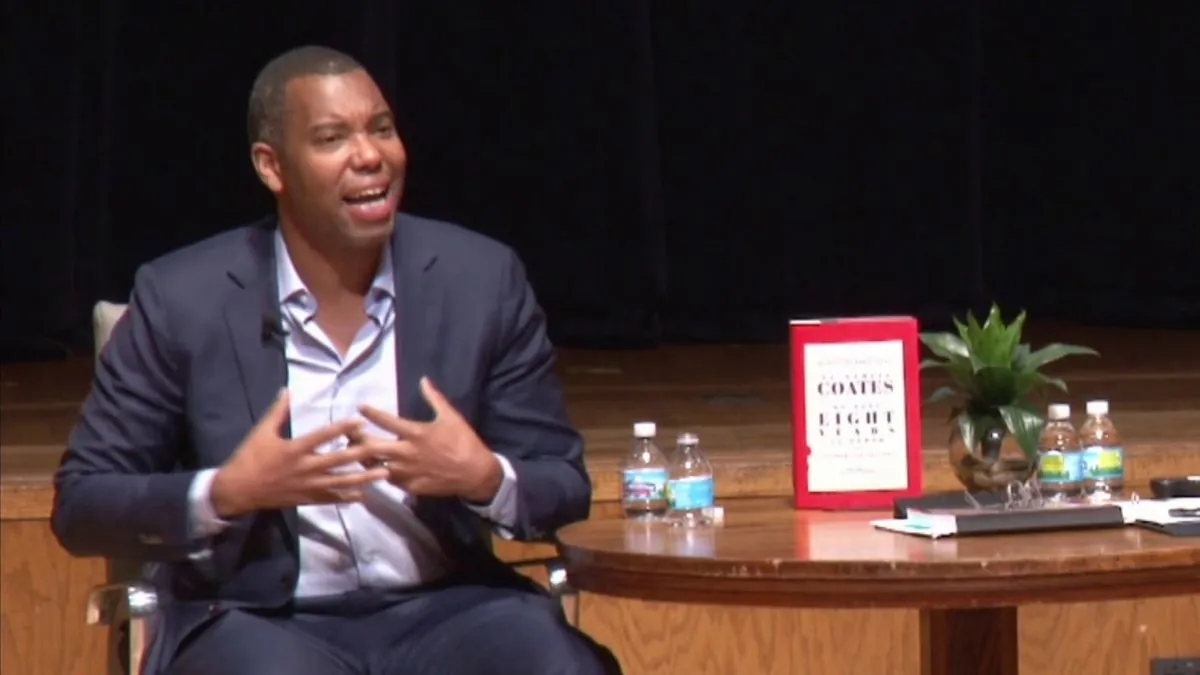Ta-Nehisi Coates' latest book, "The Message," has ignited a firestorm of controversy, largely due to misinterpretations of its content. While some critics have fixated on the book's discussion of Palestine, a closer examination reveals a more nuanced exploration of the relationship between aesthetics and politics in writing.
The slim essay collection, framed as a letter to Coates' writing students at Howard University, delves into the author's personal journey with literature and his views on the power of the written word. Contrary to the claims of detractors, "The Message" is not a polemic about the Israeli-Palestinian conflict, but rather a meditation on the craft of writing and its potential for social impact.
Coates argues that political efficacy in writing is intrinsically linked to aesthetic quality. He posits that well-crafted prose can challenge oppressive narratives and expand our understanding of humanity. This perspective is exemplified in his admiration for Frederick Douglass' writing, which he sees as a powerful tool for humanizing the enslaved.
The author also grapples with the concept of "vindicationism," cautioning against the temptation to simply invert oppressive narratives rather than creating new, more nuanced understandings of history. This idea is illustrated through Coates' personal experience visiting Dakar, Senegal, where he found himself drawn to romanticized notions of African origins despite his intellectual skepticism.
While the book does include a substantial essay on Israel and Palestine, written before the events of October 7, 2023, it is not the sole focus. Coates examines how false narratives and ethnocentric ideologies can lead to harmful policies, drawing parallels between different historical contexts.
"The arts tell us what is possible and what is not, because, among other things, they tell us who is human and who is not."
Critics have accused Coates of extremism, but his positions, such as opposing ethnocracy while supporting the concept of a Jewish state, are far from radical. The book's detractors often engage in what literary critic Lionel Trilling described as "irritable mental gestures which seek to resemble ideas," rather than thoughtful analysis of the text.
"The Message" is not without flaws. Some readers may find it disjointed and occasionally heavy-handed. The writing sometimes relies on clichés and broad pronouncements rather than specific, vivid observations. However, these stylistic shortcomings do not negate the book's thought-provoking content.
Coates' work stands in contrast to more comprehensive historical accounts like Rashid Khalidi's "The Hundred Years' War on Palestine" or detailed reportage such as Nathan Thrall's "A Day in the Life of Abed Salama." "The Message" is best understood as a personal reflection on the art of writing and its potential for social change.
The controversy surrounding "The Message" underscores the ongoing debates about the role of literature in society. While some, like journalist Jay Caspian Kang, argue for a more limited view of writing's impact, Coates maintains a fervent belief in the transformative power of words.
In an era where concepts like "critical race theory" are hotly contested, Coates' book serves as a reminder of literature's capacity to challenge and reshape our understanding of the world. While "The Message" may not fully realize its ambitious goals, it offers a valuable contribution to ongoing discussions about the intersection of art and politics in writing.
